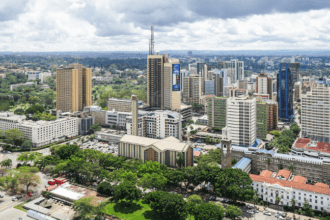
The International Monetary Fund (IMF) has officially approved the Kenyan government’s appeal for a Ksh.78 billion loan, a crucial step towards revitalizing the nation’s fiscal strategies. This decision comes on the heels of a recent meeting aimed at reviewing Kenya’s economic landscape, which had been previously stymied by anti-government protests that erupted in early June, impacting the ongoing assessments.
The IMF has expressed renewed confidence that this financial backing will enable Kenya to confront its economic hurdles effectively. Currently, the IMF is engaged in three key programs with Kenya: the Extended Fund Facility (EFF), the Extended Credit Facility (ECF), and the Resilience and Sustainability Facility (RSF). Both the EFF and ECF were developed to assist nations grappling with inflation resulting from structural issues, granting them the timeframe needed to stabilize and rebuild.One key difference between the EFF and ECF is their duration; the EFF provides a four-year restructuring period, while the ECF can extend up to five years. Meanwhile, the RSF is tailored to bolster a country’s climate-related efforts.

The IMF reported that Kenya will gain access to Ksh.62.5 billion through the EFF/ECF arrangement and an additional Ksh.15.4 billion via the RSF. These funds are particularly critical given the fiscal issues the country encounters, mainly due to a drop in tax revenues during the previous financial year and the subsequent withdrawal of the Finance Bill 2024 amid significant protests from the youth.
The IMF is optimistic that the EFF/ECF initiatives will further strengthen Kenya’s economic framework. At the conclusion of the meeting, Gita Gopinath, Deputy Managing Director of the IMF, reaffirmed the organization’s commitment to helping Kenya enhance its resilience against economic fluctuations while also addressing climate-related risks.
“Despite a challenging socio-economic context, Kenya’s economy shows resilience, with growth rates exceeding the regional average, a reduction in inflation, and strong external support for the Kenyan shilling, along with a build-up of foreign reserves,”
Gopinath
The IMF’s engagement with Kenya began in April 2021 when then-President Uhuru Kenyatta and the current President, William Ruto, signed a four-year agreement. It is anticipated that President Ruto’s administration will seek to extend this partnership once it concludes in April 2025
“The EFF/ECF and RSF programs will continue to aid the government’s actions aimed at securing macroeconomic stability, reducing debt vulnerabilities, promoting vital reforms, and tackling climate-related risks.”
This critical support from the IMF arrives at a pivotal time for Kenya, and it embodies an opportunity for the nation to regain its economic footing and foster sustainable development amidst ongoing challenges.




